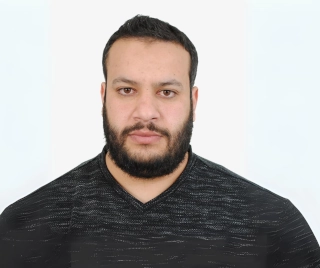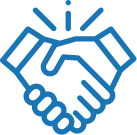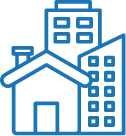French Classes with Native French Tutors
Our native-speaking qualified French teachers can guide you and your group at your work or home at whatever time is most convenient for you. Our French lessons can take place on any day of the week -even weekends-, whether it’s morning, afternoon or evening. If meeting at your office or home is not suitable, you can take your lessons at the trainer’s office. A suitable, up-to-date course book will be recommended by the teacher.

Language Trainers organizes French courses in almost any destination!

Learn French Online Or Face-to-Face
Choose French tutoring online, face-to-face, or a combination of both. As you progress, you have the flexibility to modify the mix of virtual and face-to-face learning to align with your personal preferences and timetable.
Some of our popular French Tutors

Raghda
Raghda
- Language Taught: French
- Years of teaching experience: 20
- Speaks French, Arabic, English.
Based in Toronto, Raghda is a dedicated French professor with over 20 years of experience teaching students from varied cultural backgrounds. She holds a Master’s in Education and is known for creating tailored lesson plans that address individual learning needs. Raghda’s student-centered approach ensures an inclusive and effective learning environment.

Msosi
Msosi
- Language Taught: French
- Years of teaching experience: 7
- Speaks French, English.
Originally from the Republic of Congo, Msosi is an Ajax-based native French teacher with a Diploma in Early Childhood Education from Masinde Muliro University of Science and Technology and a Diploma in Business Administration from The University of Nairobi. Alongside teaching, Msosi has served as a Deputy Headteacher and has been recognized with awards such as Teacher of the Year.

Zakaria
Zakaria
- Language Taught: French
- Years of teaching experience: 2
- Speaks French, Arabic, English.
Zakaria, a multilingual native French tutor based in Montreal, has taught various subjects to diverse learners. With extensive experience, he has also worked with the Canadian federal government, supporting agents in preparing for and passing their French exams. His lessons are tailored to individual goals, blending knowledge with exam-focused strategies.
Reviews Of Our French Courses

Lessons are going very well. The course is just what I wanted.

Working with Pascal is great! He's just a true "teacher". He speaks clearly, is patient and stays on task. He makes learning fun and the hour flies by.
“Testez votre niveau de français”...
Test your French skills
34358 tests taken so far | Average score: 36 out of 70

How to Book Your French Lessons
Take our French Language Level Test.
Let us know why you need to learn French and include the time and location that best suit you.
Review our quote and, if you are happy with it, receive our invoice and Agreement form.
Sign our Agreement form and submit a deposit* for the course.
Receive confirmation from our team with your French tutor’s details.
Begin your French training and receive your French course book.
Throughout your French course, the Language Trainers Academic Team will be on hand to help you with any queries.

After the first lesson or two, our team will contact you to ensure you are happy with your trainer. If necessary, we will change the focus of the course to better suit your needs.
After finishing your course, we will send you a course attendance and completion certificate..
Our team will provide you with follow-up learning opportunities, including: self study material, language courses in French-speaking countries, and more advanced courses with Language Trainers.
* Your quote will include options for different packages of hours ; a typical course lasts 30 hours, with classes of 2 hours each for in-person and 1 hour each for online. Deposit payable by bank transfer, cheque, debit or credit card, or PayPal.
French for...
-
 Business
Business -
 Family & Relationships
Family & Relationships -
 Career & Professionals
Career & Professionals -
 Travel & Personal
Travel & Personal -
 Relocation
Relocation -
 Real Estate
Real Estate -
 Exam Preparation
Exam Preparation -
 Healthcare
Healthcare

Free French Learning Resources
Level tests, listening tests, foreign song, film and book reviews, course book reviews, games and trivia and more.
Preferred Supplier
Language Trainers is the preferred supplier for




